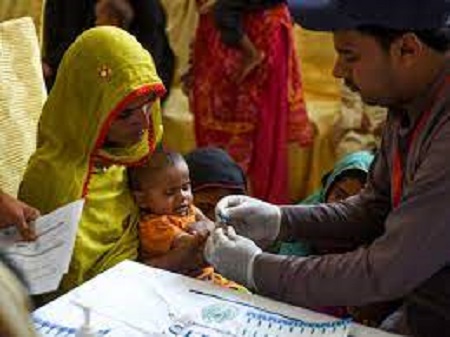According to UNAIDS and other international agencies, there are 200,000 people living with HIV/AIDS in Pakistan, with 32% of them being women and 3% being children, as the global community marks World AIDS Day—December 1—on Wednesday.
According to Dr Sharaf Ali Shah, former Project Director of the Sindh HIVAIDS programme, the rest are key populations such as transgenders, intravenous drug users, and male and female sex workers.
According to Dr. Irshad Hussain Kazmi, deputy director of infection control diseases, 100,000 of Pakistan’s 200,000 HIVAIDS cases are in Punjab, 87,000 in Sindh, and 13,000 in the rest of the country.
In Pakistan, approximately 25,000 new cases have been reported in 2020, during the peak of a coronavirus pandemic.
There is a stigma associated with HIV/AIDS in our society. While it is believed that the disease is transmitted through sexual contact, intravenous drug users are the primary source of disease transmission and dissemination in Pakistan.
“We need to raise public awareness and persuade people to get HIV tests, which are completely free in 16 centers in Sindh and 29 centers throughout Pakistan,” Dr. Hussain added.
Sources in Sindh’s health department confirm that service delivery packages, primarily for the treatment and care of transgender people and drug users, have been discontinued for the last five years, but Dr. Hussain denies this and claims that treatment and medicine are available in all of the centers.
Sources in Sindh’s Health Department confirm that service delivery packages, primarily for the treatment and care of transgender people and drug users, have been discontinued for the past five years, but Dr. Hussain denies this, claiming that treatment and medicine are available in all centers.
We need to reach the remaining 78 percent of people who aren’t going to clinics for check-ups and treatment, or else the number will rise, which we can’t afford, “Dr. Shah explained.








